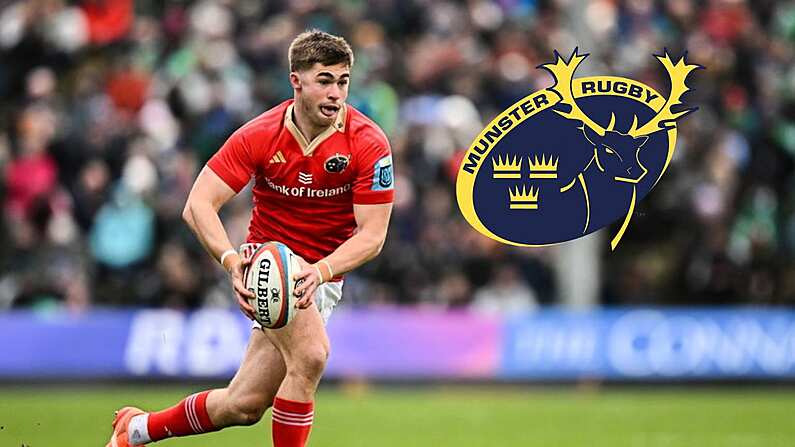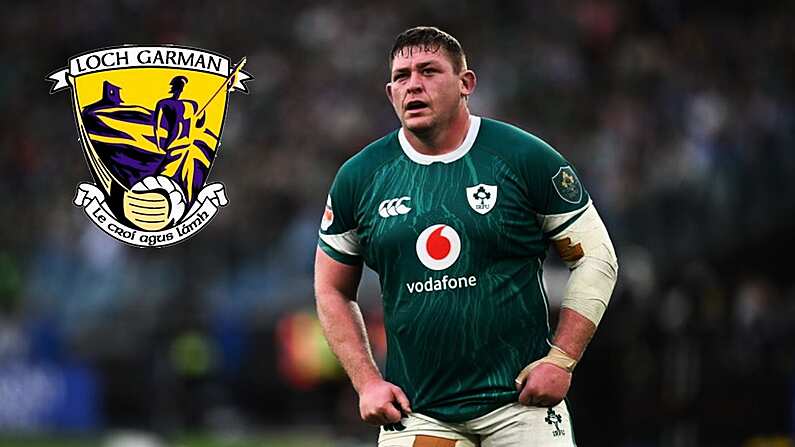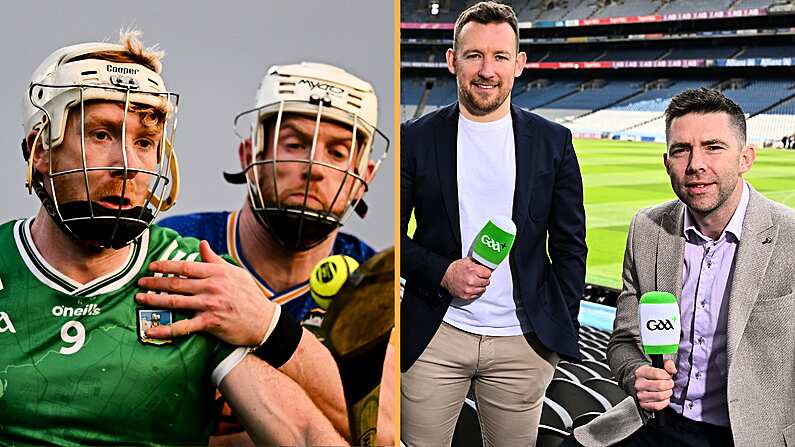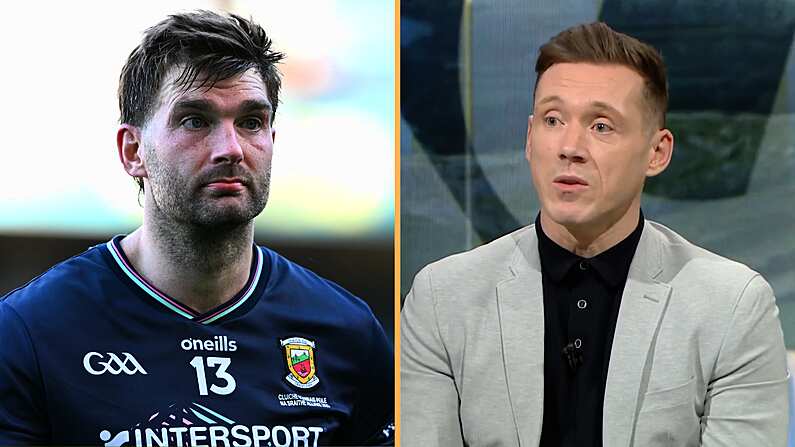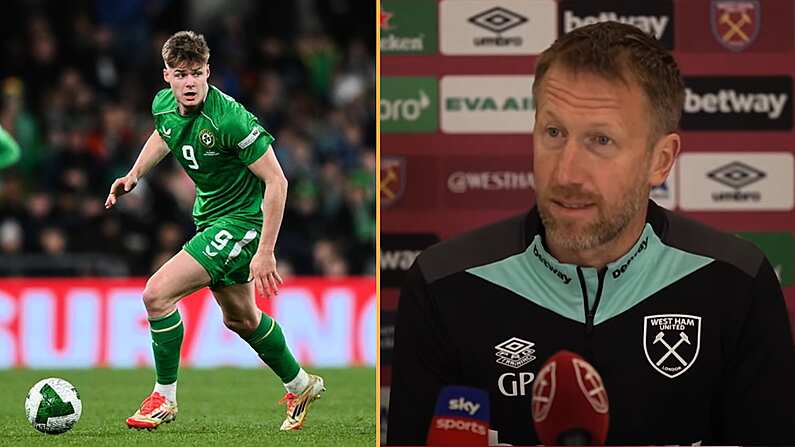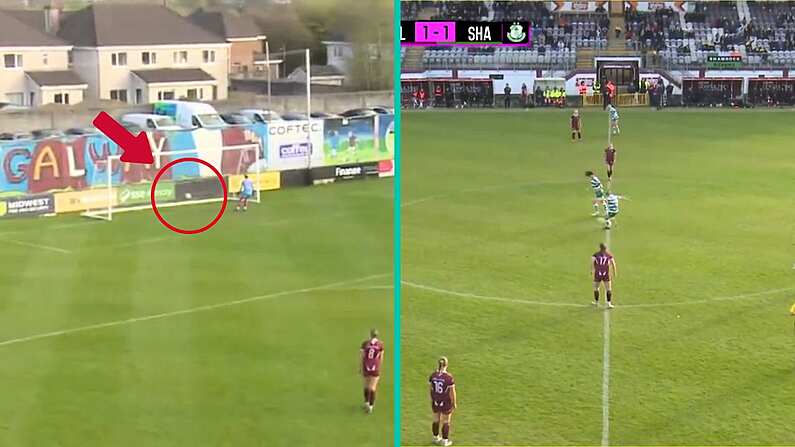Today many Irish football fans are reflecting on a strange night.
The performance against Wales wasn't what we had hoped, but it wasn't bad either, and while it's frustrating to have not been able to take all three points against 10 men, not losing the game was ultimately of more importance to keep the gap between us and Wales.
Regardless of the result or performance, the injury inflicted upon Seamus Coleman is something that is truly upsetting, and totally unfair. Nobody deserves to have that kind of misfortune, but when it's a player of Coleman's stature, who's career continues to arc upwards, it's almost like there is another level of sadness.
But you have to hope he'll come through it, as his character to this point in his career suggests he will. Players like Antonio Valencia have come back stronger from such a difficult setback, and while others, such as the Ecuadorian's teammate at Old Trafford, Luke Shaw, have understandably struggled, Seamus is made of tough stuff and we hope we see him back in a green jersey with the armband on as soon as possible.
We do, however, have to talk about the incident, as it has become the main discussion point in the hours since the final whistle. Mainly, the defense of the actions of Neil Taylor has sparked outrage and eye-rolls amongst Irish supporters, who care little for the culprit's previous record in this particular crime.
That man is Neil Taylor.
After it became clear what had happened, everybody quickly agreed that the challenge was wild, reckless, and dangerous. Where opinions differed was in what the tackle said about Taylor, the footballer, and ultimately Taylor, the man.
It's rage-inducing to see a player you greatly respect on the wrong end of something that nasty, and many were calling for Neil Taylor's head after replays were finally shown. Everything from a 10-game ban to prison time was aggressively suggested as fair punishment, while others voiced their belief that the Aston Villa player was everything from a 'prick' to 'scum'.
This in turn lead to an a weird sort of tribal, apologist response, mostly from Welsh pundits, which has caused further outrage.
I was surprised to see that to be honest, he's not that kind of player.
This is a statement that is made with the best of intentions, but is received almost like an insult. That's not a direct quote from anyone, but it's essentially what the likes of John Hartson, Chris Coleman, Dean Saunders said when discussing the tackle.
John Hartson is a great guy (he was awarded that FAI International personality award just last week), and a pundit we have a lot of time for, but he upset people when he said that last night because they assumed that he is condoning the actions of Taylor, or trying to justify why he did what he did.
Where the user of the term is coming from, in almost every case, is from a personal knowledge of the player in question, and a firm belief that they are not what they are being painted to be after making a very bad error of judgement.
But the thing is, that really doesn't matter at all.
By saying someone isn't the type of player who would deliberately injure an opponent, you're saying that there was no malicious intent in the challenge, and it can be seen as though you're absolving them of some of the responsibility. That doesn't sit well with football fans. Someone has to take the blame, and when it's as obvious to everyone who was in the wrong, as it is in this instance, challenging that is going to cause a reaction.
Taylor may not have intended to injure Seamus Coleman, but it's not like he slipped and it was an accident.
One of the main counter-points used to the idea that Taylor 'isn't that type of player' was an image of him nearly taking the head off of Kyle Walker earlier in the year.
@DietmarHamann good character that Neil Taylor, just ask @kylewalker2 pic.twitter.com/bXvij89j0b
— ciarán (@Call_Me_Ciaran) March 24, 2017
Does he look like he's deliberately kicking Walker in the face in that picture? No. Does the picture tell us that Taylor intended to hurt Walker? No. What it tells us is that Neil Taylor is prone to lapses in concentration that can prove to be dangerous.
The real question here is, who is that type of player?
We hear this all the time, almost any time there's a bad challenge in a high profile game. But, who are the players that are going out to deliberately injure an opponent? Who are you telling me that Neil Taylor is not like?
If we're being honest, one of the only widely known examples of that kind of act was the challenge by Roy Keane on Alf-Inge Haaland. Keane was out for revenge after the Leeds player mocked his own serious injury and he has since revealed that he isn't remorseful for having done it. Some people think of Keane as a dirty player, but many, including myself and a hell of a lot of Irish fans, consider him one of the greats, and a hero, albeit a flawed one.
When I think of players that I believe have a reputation for being nasty, and endangering their opponents, Ben Thatcher comes to mind for a series of horrible incidents including an assault on Pedro Mendes, but aside from that, I can't think of many that would make a conscious decision to put a halt on someone's career like that.
And because that player doesn't exist, the statement 'He's not that type of player' is redundant. It's meaningless. It is the exact same as when you hear about a serial killer on the news, and they interview his neighbours to hear them say things like 'It's just so unexpected, he was such a normal guy'. It doesn't change anything.
Neil Taylor being a model pro, apart from axe-kicking Kyle Walker and now breaking Seamus Coleman's leg, means absolutely shag all to the fans who are both dejected that their captain has to suffer such a blow, and disgusted in the manner that it happened. And it likely means even less to Seamus Coleman.
To make that statement is basically to say that it was bad, but he's a nice guy so don't go too hard on him. What's funny is, Chris Coleman was about to say the second part of that sentence that makes it more understandable.
Neil Taylor's not really that type of player, but if he's got it wrong - I've not seen it again I've just been told that it's a tough one for Seamus.
That's what he said in his post match interview.
So close. If he says 'But if he's got it wrong he has to accept that's inflicted that type of injury on a fellow professional', then it's a non-issue. He wouldn't have, he would have likely said 'he's got to hold his hand up', which is another kind of odd cliche. But that's what will likely hurt Neil Taylor the most. Especially as he has been on the other end of one himself.
If you saw his face as he walked off the pitch, it looked like after seeing Coleman it sank in what he had done, and he looked sick. Ray Houghton on the Sky commentary even commented that he clearly felt awful, funnily enough he said he's 'not that type of lad'. This won't be the defining moment of Taylor's career or what people remember him for, like Ben Thatcher above.
If Hartson had said 'He's not that type of player but it's wild and reckless from him, which is disappointing', it's more understandable, but both he and Coleman are coming from a place where they are not comfortable seeing Taylor's character take a hammering.
He may be a great lad. He might go visit Coleman in hospital and apologise for his tackle, which Coleman would no doubt accept, but that doesn't erase the mistake, and it doesn't make the rehabilitation process for Seamus any easier.
For pundits, managers, players, and even fans, the line 'he's not that type of player' is something that just shouldn't be said. It's irrelevant.
There has to be an alternative, and it has to start with accepting that a person's previous record does not make them immune to criticism if they act out of character. That was not the intention of those who used the phrase, but that is how it comes across.


